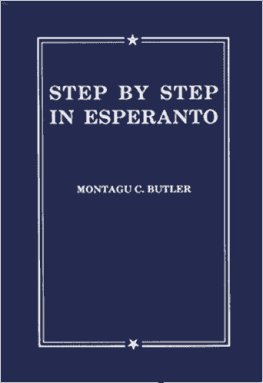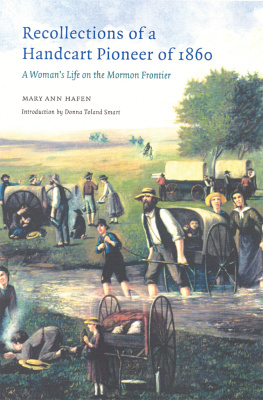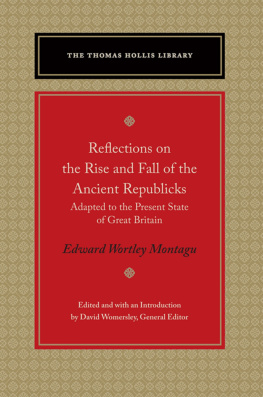Victor Alexander Montagu - A Middys Recollections, 1853-1860
Here you can read online Victor Alexander Montagu - A Middys Recollections, 1853-1860 full text of the book (entire story) in english for free. Download pdf and epub, get meaning, cover and reviews about this ebook. year: 2019, publisher: Good Press, genre: Non-fiction. Description of the work, (preface) as well as reviews are available. Best literature library LitArk.com created for fans of good reading and offers a wide selection of genres:
Romance novel
Science fiction
Adventure
Detective
Science
History
Home and family
Prose
Art
Politics
Computer
Non-fiction
Religion
Business
Children
Humor
Choose a favorite category and find really read worthwhile books. Enjoy immersion in the world of imagination, feel the emotions of the characters or learn something new for yourself, make an fascinating discovery.

- Book:A Middys Recollections, 1853-1860
- Author:
- Publisher:Good Press
- Genre:
- Year:2019
- Rating:3 / 5
- Favourites:Add to favourites
- Your mark:
- 60
- 1
- 2
- 3
- 4
- 5
A Middys Recollections, 1853-1860: summary, description and annotation
We offer to read an annotation, description, summary or preface (depends on what the author of the book "A Middys Recollections, 1853-1860" wrote himself). If you haven't found the necessary information about the book — write in the comments, we will try to find it.
A Middys Recollections, 1853-1860 — read online for free the complete book (whole text) full work
Below is the text of the book, divided by pages. System saving the place of the last page read, allows you to conveniently read the book "A Middys Recollections, 1853-1860" online for free, without having to search again every time where you left off. Put a bookmark, and you can go to the page where you finished reading at any time.
Font size:
Interval:
Bookmark:

RECOLLECTIONS
REAR-ADMIRAL THE HONOURABLE
VICTOR ALEXANDER MONTAGU
ADAM AND CHARLES BLACK
1898
MY MOTHER
| CHAPTER I |
| PAGE |
| Entering the Navy |
| CHAPTER II |
| The Princess Royal |
| CHAPTER III |
| War with Russia Declared |
| CHAPTER IV |
| The Crimea |
| CHAPTER V |
| Punishments in the Navy |
| CHAPTER VI |
| Russia Collapses |
| CHAPTER VII |
| Leisure Hours |
| CHAPTER VIII |
| Some Distinguished Sailors |
| CHAPTER IX |
| Play on Board; and some Duties |
| CHAPTER X |
| Pirate-Hunting; and a Dinner Party |
| CHAPTER XI |
| War with China Declared |
| CHAPTER XII |
| The Raleigh Wrecked |
| CHAPTER XIII |
| At War in China |
| CHAPTER XIV |
| More Pirate Hunting |
| CHAPTER XV |
| The Indian Mutiny |
| CHAPTER XVI |
| The Naval Brigade at Work |
| CHAPTER XVII |
| Incidents of the Campaign |
| CHAPTER XVIII |
| A Touch-and-Go Engagement |
| CHAPTER XIX |
| Compliments to the Naval Brigade |
| CHAPTER XX |
| Home Again |
| The author as a Midshipman in 1856. From an oil painting |
| Facing page |
| The author as a Naval Cadet, 1853. From a miniature |
| H.M.S. Princess Royal, of 91 guns, 1853 |
| The signal flying for war, and Fleet cheering |
| H.M.S. Raleigh, 50-gun sailing frigate, wrecked off Macao (China), the 14th April 1857 |
| The battle of Fatshan, showing the sinking of Commodore The Honourable Henry Keppels galley, 1st June 1857 |
| H.M.S. Pearl, 21-gun corvette |
| The author at the present day |
ENTERING THE NAVY
Font size:
Interval:
Bookmark:
Similar books «A Middys Recollections, 1853-1860»
Look at similar books to A Middys Recollections, 1853-1860. We have selected literature similar in name and meaning in the hope of providing readers with more options to find new, interesting, not yet read works.
Discussion, reviews of the book A Middys Recollections, 1853-1860 and just readers' own opinions. Leave your comments, write what you think about the work, its meaning or the main characters. Specify what exactly you liked and what you didn't like, and why you think so.








